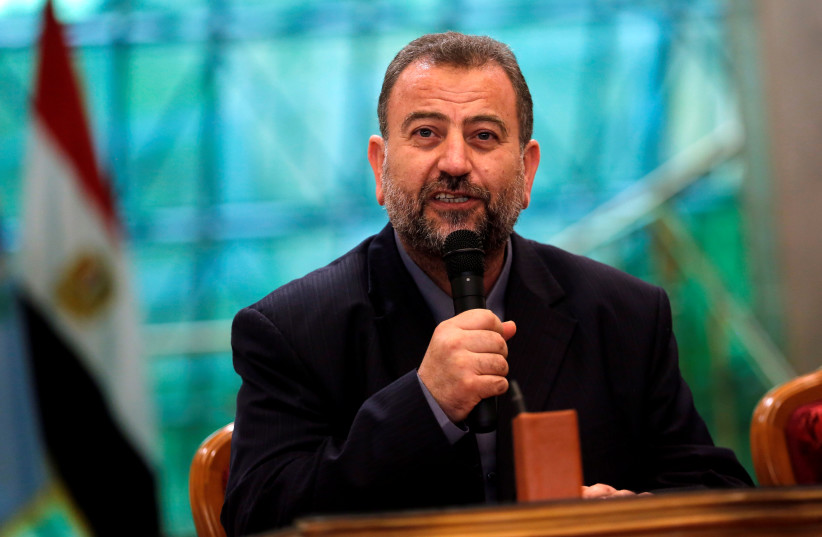Hamas deputy leader Saleh al-Arouri was born in 1966 and detained in the 1990s by Israel. He eventually left prison and moved to Turkey before migrating to Qatar and Lebanon.
SETH J. FRANTZMAN JANUARY 3, 2024 01:26
Pro-Iranian media in the Middle East have reacted to the killing of Hamas deputy leader Saleh al-Arouri. The reactions run the gamut from claims that the killing will not go “unpunished” to claims that Hamas “resistance” will not be impacted.
Al-Mayadeen, for instance, has seven articles on the killing. One article looks at who Arouri was before he was killed. It noted he was born in 1966 and detained in the 1990s by Israel. He eventually left prison and migrated to Turkey, before moving to Qatar and Lebanon.
Hamas leader Ismail Haniyeh has reacted by saying Hamas “will never be defeated.” Haniyeh has also called the killing a “terrorist” act of “aggression” and claims it expands the conflict. Hamas attacked Israel on October 7 massacring more than 1,000 people.

Another article at Al-Mayadeen focuses on the Hezbollah response. Hezbollah leader Hassan Nasrallah has said that this “assassination” will not go “unpunished.” In Yemen, the Houthis, who have been attacking ships in the Red Sea also claimed that the killing will make their attacks “stronger.” In Gaza, Hamas continues to brag that it is fighting Israel and claims continued successes in battles in Khan Yunis and Al Bureij. According to Al-Mayadeen, there will be a general strike in the West Bank on Wednesday due to the killing of Arouri.
Middle East media reacts
AL-Masirah, a media organization that is tied to the Houthis in Yemen, had similar articles about the killing as other pro-Iran media. It also quoted Haniyeh and Hezbollah. This reflects how the pro-Iran media nexus in the Middle East is keyed into all the Iranian proxies and arenas in which Iran operates.
Iran’s Tasnim News further reported on the assassination. The Iranian foreign ministry slammed the “assassination” of Arouri, for instance. Iran is also preparing for the third anniversary of the killing of IRGC Quds Force head Qasem Soleimani, who was killed by the US on January 3, 2020 –therefore, Iranian media is now mourning both Soleimani and Arouri after recently mourning IRGC official Razi Mousavi, who was recently killed in Damascus.
Fars News, which is close to the Iranian IRGC, had articles detailing how Palestinian Islamic Jihad is reacting. PIJ is an Iranian proxy that operates in Gaza and the West Bank. An advisor to Iran’s Supreme Leader also repeated the mantra that the killing will not stop the “Palestinian resistance.” An image at Fars News shows missiles and a Hezbollah flag and quotes Nasrallah claiming the killing will not go unpunished. This claim has been repeated across all the pro-Iran media in the region, in Lebanon, and Yemen. Fars News also claimed there was an attack on Al-Asad base in Iraq on Tuesday evening. Iranian proxies in Iraq and Syria have carried out around 120 attacks on US forces since October 7. Iran wants to unite the Iraq-Syria “arena” with other attacks on Israel and attacks in the Red Sea.
The articles in the pro-Iran media reflect a kind of message discipline. The messaging is that there will be retaliation against Israel, whom Iran blames for the attack, and that Hamas will not be weakened by the killing.
Content retrieved from: https://www.jpost.com/middle-east/article-780532.